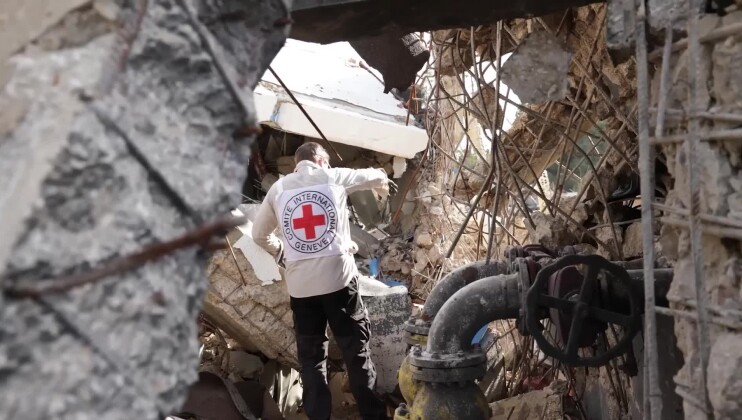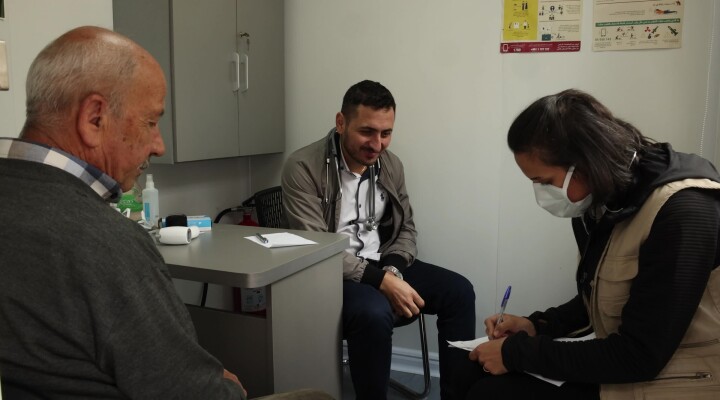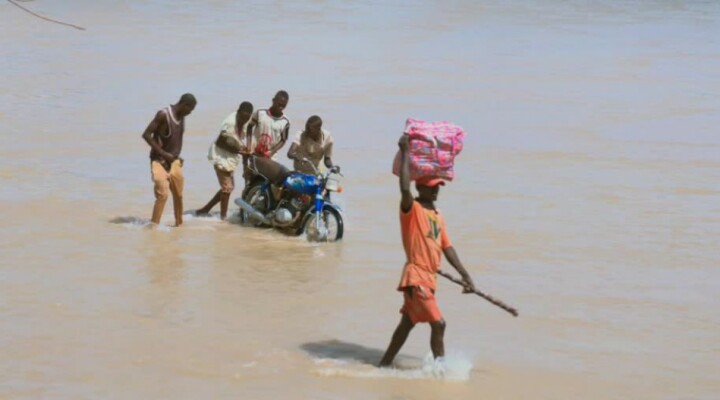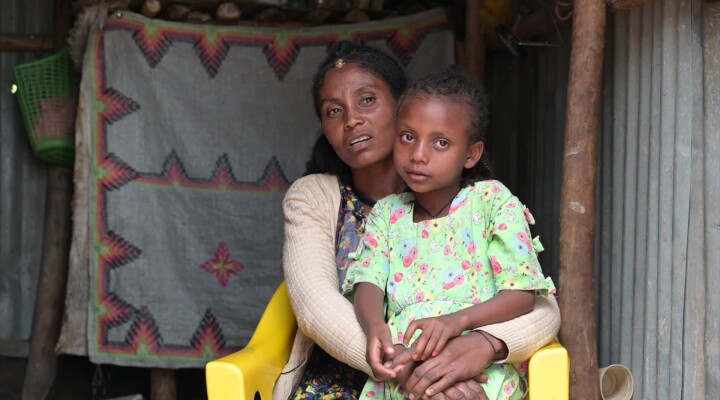Int day of the disappeared: Hundreds of Thousands missing globally
Armed conflicts, natural disasters and migration have resulted in hundreds of thousands of people around the world going missing. Each missing person leaves behind loved ones in anguish not knowing what happened.
In Colombia, over 68,000 people are missing. In Nepal seven years after the end of the fighting more than 1,360 people are still reported missing by their families. In Uganda, nearly 10,000 people have vanished without a trace.
Nekodina Adoch’s four sons were abducted by armed men from their home in Raram village in Uganda 20 years ago. She still vividly remembers every detail of that night, “At midnight, while sleeping, I heard them banging the door where the children were sleeping. They started collecting the children. I followed them. They asked me, ‘where are you going, woman?’ I replied ‘you have taken all my children! At least, leave just one for me!’ We are taking them for work, they replied.”
Over the years, three of her sons have returned separately as and when they got an opportunity to escape. As her sons struggle with the trauma of years of captivity, she continues living in distress not knowing the fate of her last-born child Lutoo Sam who hasn’t yet come back home. Two decades on, dreams of his fate continue to torment her.
Like Nekodina, Alfonse Bongomin’s 14-year old son Ociti was also abducted right in front of his eyes. 19 years since the incident, Alfonse still feels an utter sense of helplessness, “I saw Ociti, how he was tied up and I could only look on. They tied his hands, and then they tied him to others abducted from other villages. They were tied together with ropes around their waist, their hands were also tied, and each rope had about 10 or more people tied up together.” He distinctly recalls going home and mourning his child, spending many sleepless nights, wishing he was also abducted with Ociti just so he could be together with his son.
He feels the pinch of his missing child every day of his life. “Just the way l am now, just take a look at my home. If Ociti was around it would not be bushy like this. Look, the house might collapse before the end of the year. If Ociti was around, now that I am too old, he would have rebuilt the house for me. Now if the house collapses, I do not know who will help me rebuild it.”
Over the years, the pain has only deepened. The frustration of not knowing ultimately drove Alfonse to try ending his life. While his first suicide attempt was unsuccessful, he remains just as dejected. “My thinking is that if I wait for Ociti in vain until December or till the end of the year, if there is no clear report that he is alive or dead, then I need to devise a new method so that I lose my life as well”, he says.
To prevent loved ones from feeling this extreme sense of sheer hopelessness, the International Committee of the Red Cross (ICRC) organises regular meetings to help families cope with the trauma of dealing with the disappearance of a loved one. Over 14 weeks, Alfonse, Nekodina and other families of the missing can share their experiences and pain - and ways of coping. Trying to reconcile their experiences, Nekodina said, “In the meeting we held today, we talked about my problems. We came to console ourselves over our troubles."
Under International Humanitarian Law, families of the missing have the right to know the fate of their loved ones. States have an obligation to take all feasible measures to clarify their whereabouts and inform their families accordingly. The ICRC is currently looking for more than 52,000 missing people, working directly with the families of missing persons and the authorities involved.
The ICRC - around the world - encourages the assessment of the multifaceted needs of the families of the missing. They encounter a variety of economic, administrative, legal, psychological and psychosocial difficulties. In order to respond properly to all those interconnected needs, the ICRC promotes a holistic response helping families cope better with their lives.
Shotlist
Location: Various
Length: 06:03
Format: HD & SV H264 MOV
Production: Various
Camera: Various
Sound: Luo
ICRC ref: AV213N
Date: Various
Copyright: ICRC access all
November 2013 – Colombia (various)
00:00 Columbia commemorating its missing people
00:18 Flowers being offered to the photos of those missing
November 2012 - Nepal
00:29 Wide shot of ceremony for the missing in Nepal
00:32 Close up shot of family crying for the missing loved one
00:53 Shots of ceremony commemorating the missing
August 2014 - Uganda
01:02 Nekodina Adoch working in the field
01: 19 SOUNDBITE (in Luo): Nekodina Adoch, mother of a missing person, Raram, Lamwo District, Uganda:
“At midnight, I was already asleep. While still sleeping, I heard them banging the door where the children were. Then I woke up together with my husband. They started collecting the children. I sat at the door; I was seated at the door. I started following them. They passed from here. I started following them. They asked me, ‘where are you going, woman?’ I responded ‘you have taken all my children! At least, leave just one for me!’ We are taking them for work, they responded."
01:58 Shots of Nekodina walking in the field
02:20 Alfonse Bongomin showing family pictures to Alfred Apenya, volunteer trained by ICRC to be an accompanier i.e. volunteer to “support group process” with the families of missing (FOM).
02:46 SOUNDBITE (in Luo): Alfonse Bongomin, father of a missing person, Kapwata, Uganda:
“I saw Ociti, how he was tied up and I could only look on. They tied his hands, and then they connected him to others abducted from Raram, Lagure, Amuja, Lacara, and Tumbafu. They were connected with the ropes around their waist, their hands were also tied, and each rope had about 10 or more people tied up together.”
03:20 Alfonse Bongomin, old and frail, walking towards his house
03:34 SOUNDBITE (in Luo): Alfonse Bongomin (Ociti’s father, Kapwata, Uganda):
“Just the way l am now, just take a look at my compound. If Ociti was around it would not be bushy like this. Look, the house might collapse before the end of the year. If Ociti was around, now that I am too old, he would have rebuilt the house for me. Now if the house collapses, I do not know who will help me rebuild it.”
04:02 Shots of Alfonse washing his hands and face
04:42 SOUNDBITE (in Luo): Alfonse Bongomin (Ociti’s father, Kapwata, Uganda):
“My thinking is that if I wait for Ociti in vain until December or at the end of the year, if there is no clear report that he is alive or dead, then I need to devise a new method so that I lose my life as well.”
04:46 Shots of group meeting to help the families of the missing
05:27 SOUNDBITE (in Ugandan dialect): Nekodina Adoch (mother from Raram, Lamwo District, Uganda):
The meeting we held today, we talked about my problems. We came to console ourselves over our troubles. We talked about (home) visits. The ones taken away from us pain me a lot.
05:47 Close up shots of group meeting of the families of the missing
06:03 END



